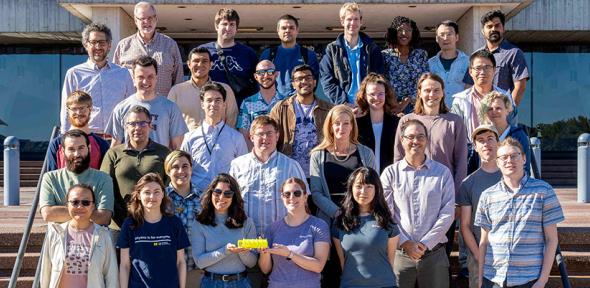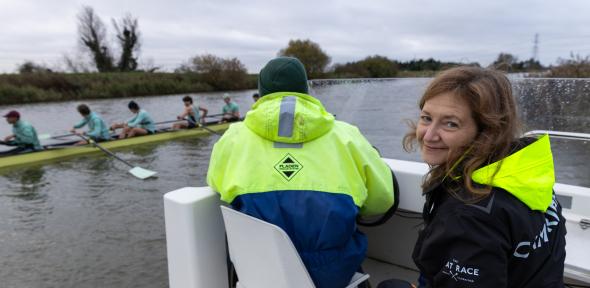
A total of 48 projects from across the UK are receiving funding from a new £9 million proof of concept programme to support and accelerate the development of new or improved technologies, products, processes and services. The aim of the UK Research and Innovation (UKRI) fund is to use research to drive growth and create the jobs of tomorrow.
The four Cambridge projects receiving funding exemplify the University’s commitment to translating world-class research into practical solutions that address global challenges in health, sustainability, and inclusion.
CamBoom: championing inclusion in cricket with engineered bamboo bats
Pioneered by Dr Darshil Shah, Associate Professor in Materials Science and Design in the Department of Architecture, this innovation aims to achieve an inclusive and sustainable future for cricket by developing low-cost bamboo bats, meeting the needs of millions of players in low and middle-income countries.
AI-based coronary artery analysis
Professor Martin Bennett, British Heart Foundation Chair of Cardiovascular Sciences in the Department of Medicine, is using AI to advance medical diagnostics, improving the accuracy and efficiency of coronary artery analysis.
Pre-clinical development of orally-administered, ultra-stable antibody mimetics
This initiative, led by Professor Mark Howarth and Dr Ana Rossi at the Department of Pharmacology, focuses on new treatments for gastrointestinal conditions, using innovative antibody mimetics that can be administered orally.
Sustainable film packaging from plant waste
Professors James Elliott, Ruth Cameron and Serena Best from the Department of Materials Science and Metallurgy have developed a new way of creating sustainable cellulose-based films at scale from waste plant material, with a range of applications from food and personal care packaging to anti-static discharge bags.
Professor John Aston, Pro-Vice-Chancellor for Research at the University of Cambridge, said: “Turning Cambridge research into innovations that will change people’s lives is at the heart of our mission. That four Cambridge projects have received UKRI proof of concept funding is a tribute both to the excellence of our researchers and to the support provided by our innovation arm, Cambridge Enterprise, in helping to translate their new ideas into effective solutions to global challenges.”
Dr Jim Glasheen, Chief Executive of Cambridge Enterprise, added: “The strength of Cambridge research lies not only in its scientific excellence but in our ability to translate discoveries into real-world impact. These projects are a great example of this strength, and showcase the University’s leadership in research translation and innovation. Funding of this kind is vital for nurturing breakthrough ideas and delivering lasting impact.”
UKRI proof of concept funding
This funding provides critical early-stage support to projects, helping researchers and innovators bridge the gap before attracting private investment, reducing the risks associated with premature market entry.
Of the 48 projects receiving funding, Professor Charlotte Deane, UK Research and Innovation’s (UKRI) Research Commercialisation Executive Champion, said: “These projects are a powerful demonstration of the UK’s talent for turning cutting-edge research into real-world solutions. UKRI’s new proof of concept programme is all about helping researchers take that critical next step toward commercialisation, ensuring that bold ideas are not just published but put into practice where they can deliver tangible impact.”
Adapted from a Cambridge Enterprise news story
Four cutting-edge University of Cambridge research projects are to receive funding from UKRI to grow into market-leading products and services.

The text in this work is licensed under a Creative Commons Attribution-NonCommercial-ShareAlike 4.0 International License. Images, including our videos, are Copyright ©University of Cambridge and licensors/contributors as identified. All rights reserved. We make our image and video content available in a number of ways – on our main website under its Terms and conditions, and on a range of channels including social media that permit your use and sharing of our content under their respective Terms.







